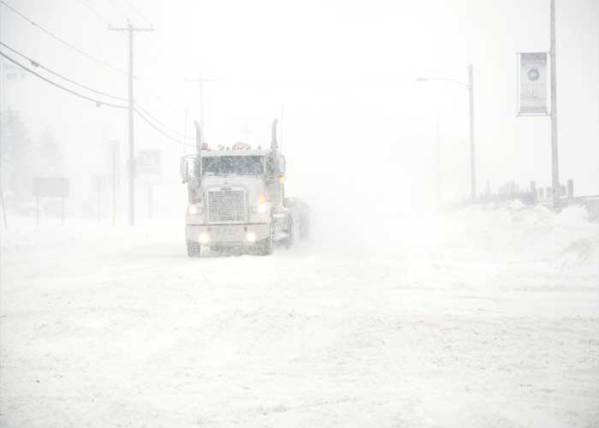
"Montana's winter weather can pose a serious threat to the livelihood of Montanans who depend on propane and heating oil," Bullock said.
"This Order will ensure the timely and necessary delivery of petroleum products so that Montanans keep warm in their homes and continue to work, even in the harshest of winter conditions."
According to a press release from the Governor's office, the signing of the Executive Order temporarily suspends “hours of service” regulations for carriers actively involved in transporting propane, heating oil, and diesel fuel to communities across Montana.
Bullock has directed that “hours of service” regulations be suspended to provide the consistent and timely delivery of propane, heating oil, and diesel fuel during extreme winter conditions. Bullock says the delay in the delivery of propane, heating oil, and diesel fuel has the potential of threatening the health, property, and welfare of Montanans in the winter months.
The Executive Order requires that carriers and commercial drivers operate their commercial motor vehicles in a safe and prudent manner, and that “hours of service” requirements must be followed if a driver needs immediate rest.
The Federal Motor Carrier Safety Administration (FMCSA) Hours-of-Service (HOS) regulations require motor carriers of property to provide drivers with better opportunities to obtain sleep and rest for safe operation, and thereby reduce the incidence of crashes attributed in whole or in part to drivers operating commercial motor vehicles (CMVs) while drowsy, tired, or fatigued. This action is necessary because the FMCSA estimates that between 196 and 585 fatalities occur each year on the Nation's roads because of drowsy, tired, or fatigued CMV drivers transporting property. The FMCSA estimates that this final rule when adhered to fully will save between 24 and 75 lives each year as a result of giving truck drivers an increased incremental amount of time to obtain rest and sleep.
Whether you’re driving in rain, snow, ice or fog, following a few simple tips will help you, your family and your vehicle arrive to its destination safely.
“According to the U.S. Department of Transportation, 23 percent of all auto collisions are weather-related, mostly due to wet pavement and rain. Follow your instincts and don’t drive if you feel unsafe or if authorities are advising you to stay off the roads,” said Anna O’Donnell, AAA MountainWest spokesperson “If you do venture out, proceed with caution.”
The first rule of safe driving during any kind of inclement weather is to slow down. If your visibility is so limited that you can’t see in front of you, carefully pull off to the side of the road and stop completely
(PHOTO COURTESY: CDLLife)

